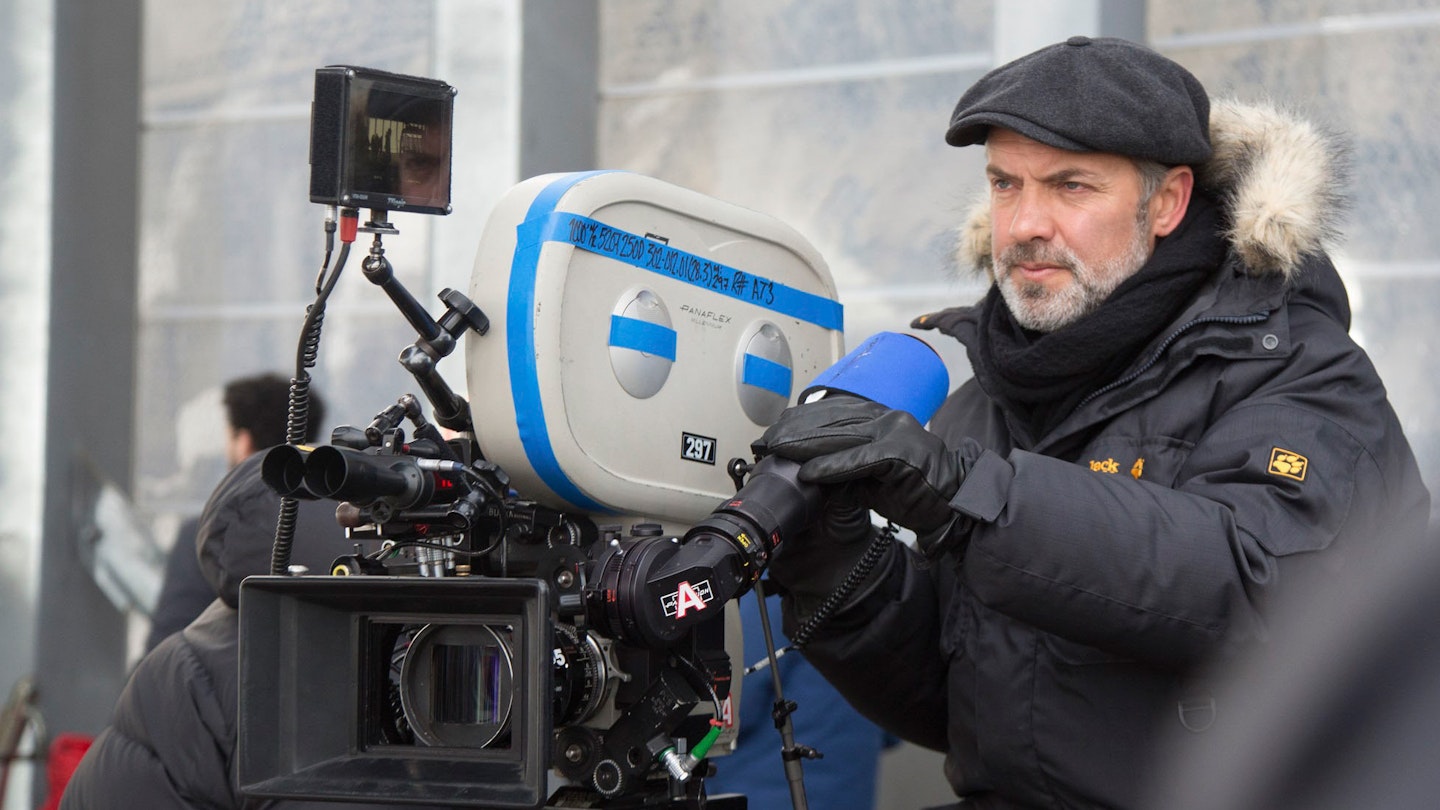When Empire asked Sam Mendes to guest-edit our new Spectre issue, we knew something special was in store. But when he asked to conduct some interviews of his own we had no idea he’d put his questions to a bunch of the biggest directors in Hollywood. What follows is a selection of answers from Empire’s November issue, lovingly put together by the Bond director himself. Read on for Mendes’ Q&A-list.
Have you ever walked off a set in a temper?
Steven Spielberg: I’ve never walked off a set before and I can’t imagine why I would.
David Fincher: No, but I have cleared a set to speak with an actor, or actors.
Ang Lee: I only Hulked out once.
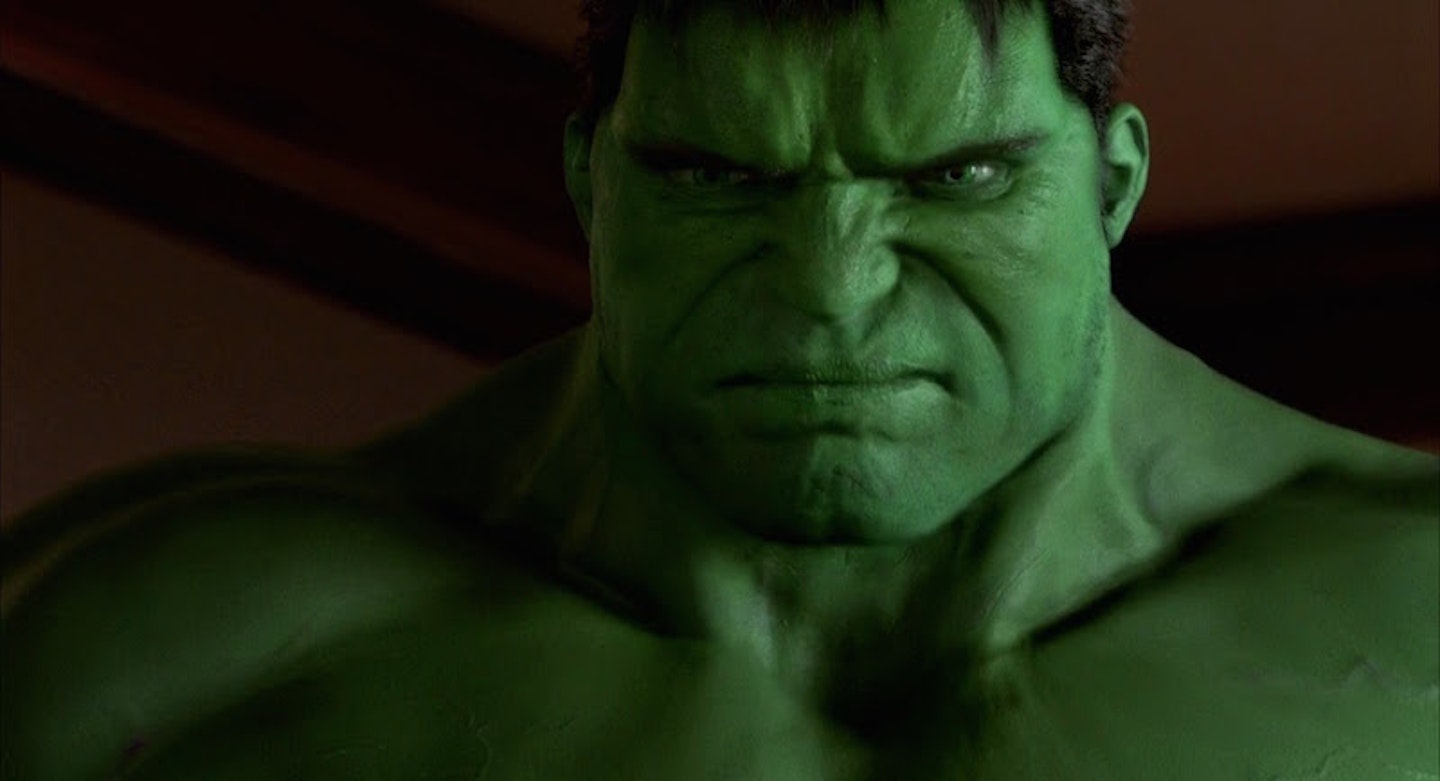
Edgar Wright: Almost. Once on Channel 4’s Spaced I was having a tricky time shooting 15 scenes from seven different episodes with a new-that-day crew. When lunch was called I went for a walk and kept on walking. Then I called my producer Nira (Park) from a phone box and said, “I can’t hack it anymore, you should get someone else for Monday.” She talked me down from the ledge and I came back to work. So, I have never really flipped out on set, but I can be an incredible sulk.
Alfonso Cuarón: Yes, only to come back feeling very stupid.
Joe Wright: I rarely lose my temper and try not to raise my voice, but I’ve left set in a sulk many times. I sulk or even cry rather than lose my temper.
Paul Greengrass: Once, when I couldn’t work out how to shoot an eight-handed dialogue scene in the desert in the middle of the night. After I’d banged my head against a Humvee for ten minutes trying to work it out, I was fine and carried on!
Joss Whedon: Nope. I’ve lost my temper, but not impressively. I’ve walked out of a VFX review in a quiet, blind rage, but only for a minute or so ’til I could see again.
Rob Marshall: It’s not even a possibility.
Christopher Nolan: I once tried, but nobody seemed to notice, so I came back.
Steven Soderbergh: No, but I did walk ON to a set with a temper once when an actor showed up late two days in a row.
Sofia Coppola: Ha, no.
Susanne Bier: No.
Alexander Payne: Fuck no.
George Clooney: No. The reason is because eventually you have to walk back on, and that would be too humiliating.
Roger Michell: Not yet.
What is the most common phrase you use on set?
Greengrass: “Fuck the script/lighting/extras etc., let’s shoot!”
Lee: To actors, “Can you close the gap between sentences?”
Joe Wright: “Beautiful. One more.”
Clooney: “What time is lunch?”
Cuarón: “Vamonos!” and “Who’s not ready?”
Whedon (whiny voice): “Come on, guys, I’m the leader of a whole movie...!” When I want people to fear and respect me. Not wildly effective.
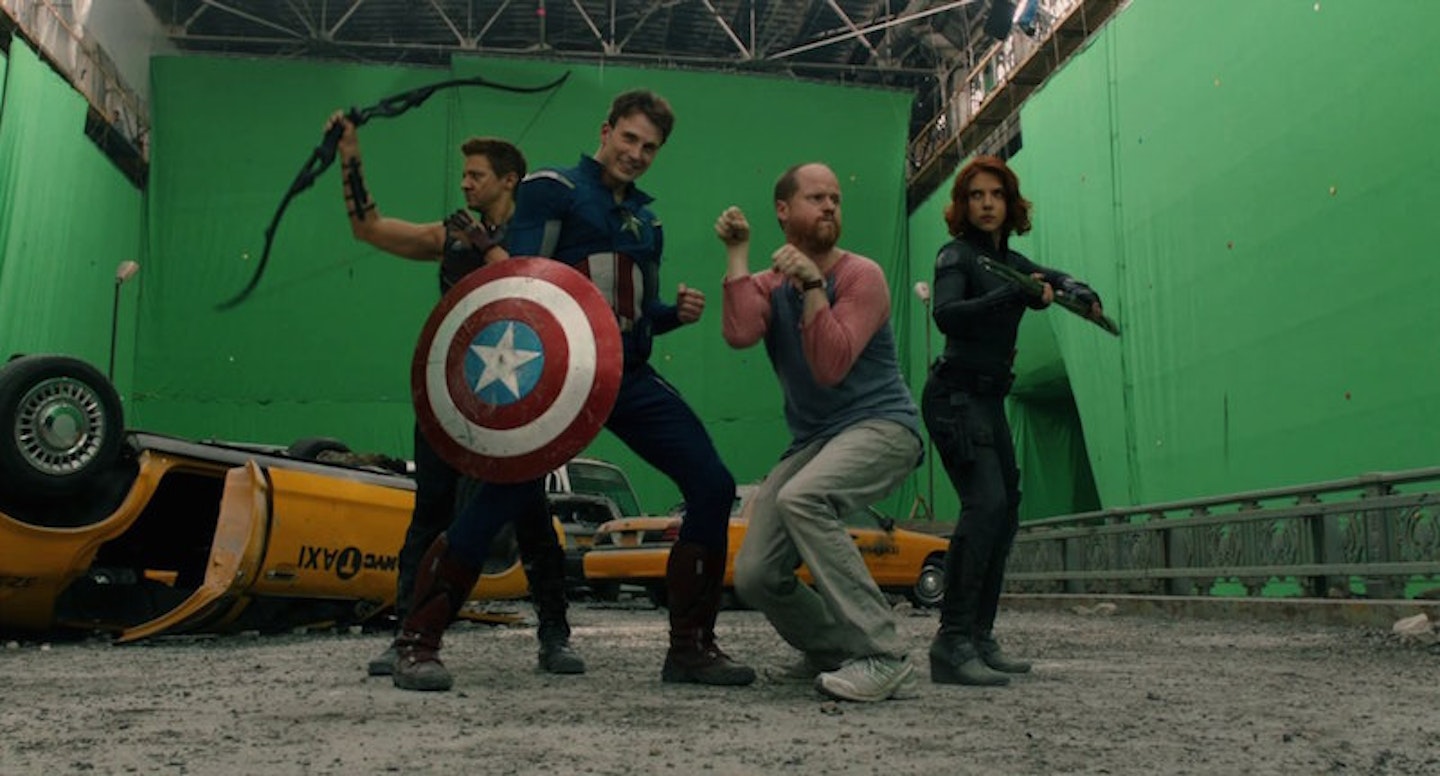
Payne: To the actors, “Great, now faster.” To the crew members, “If this were easy, I would have hired a relative.”
Michell: “Okay, how long will that take?”
Nolan: “Moving on.”
Spielberg: “Cut.” “That was brilliant.” “Once more!”
Soderbergh: This year? “Let me have the 18 on a stick.”
Edgar Wright: “Just one more.” Also I think my regular actors can hear the lilt in the way I say “and cut” that either means, “That was great, moving on,” or, “We’re doing that again.”
Bier: “What if...”
Coppola: “Okay, great, let’s do it again.”
Marshall: “Cut. That was great.” I think it’s always important to give immediate positive reinforcement.
Fincher: “Shut the fuck up, please.”
Music or no music on set?
Spielberg: I’ve occasionally played music on set during silent scenes. For the last scenes between David and his mother in A.I., I played Morricone’s Cinema Paradiso.
Edgar Wright: Yes, sometimes music to psych people up! On **Scott Pilgrim **we would blast songs constantly. And on World’s End the actors would have songs in their earwigs, so they could all walk in time to The Doors. I also remember playing a Teenage Fanclub intro from my laptop shooting a close-up of Paddy Considine pining for Rosamund Pike. It’s fun to score the ends of scenes too, give them finality.
Whedon: Never even occurred to me. Except during sweeping crane moves — sometimes I hum a bit of some score during playback to see if it’s having the effect I want.
Bier: Both. Obviously not at once.
Cuarón: Not often but I’ve played specific music for particular scenes, if it helped the actors get into the mood on set. Chaplin used to always have a violinist on set. I’m thinking of having Engelbert Humperdinck singing on set for my next film.
Greengrass: None — though I once walked round playing guitar for an hour when I was bored with what I was doing...
Marshall: Well, the majority of films I’ve done are musicals — so more often than not I’m calling, “Playback!” as opposed to, “Action!” But the truth is, there’s nothing like having music on the set! It creates mood, rhythm and emotion.

Lee: No.
Soderbergh: No music.
Payne: No music. Ain’t nobody got time for that.
Fincher: No music, unless it’s a club scene, in which case we will play music earsplittingly loud so that the actors might speak to the level of the expected ambience.
Clooney: No music.
Coppola: Yes, I like to play music on set.
Joe Wright: Always music and all the time. I have my set rigged with the biggest sound system possible and have a mini jack for my iPod attached to my director’s chair. I find playing music is a very direct way to communicate with actors and the crew, especially those crew members who are on the periphery of the set. I like dancing on set too, it’s a good way to release tension.
What are your on-set rules for the crew, if any?
Fincher: We are not here to witness, but to participate.
Nolan: No phones. No phones. No phones.
Michell: Think ahead. Be kind. Skip lunch. Go home early.
Bier: No smoking. No small-talk. Always deliver bad news with a smile and a joke. Also, no smoking.
Marshall: Come to me directly if there’s a problem. That’s what I’m here for.
Clooney: If anybody has a good idea, speak up.
Lee: I just want it to be quiet and focused.
Edgar Wright: I have my own monitor away from video village that is close to the camera. And I don’t like anyone standing behind me talking. So my main request every hour or so is to ask the AD to get the talkers away from me. No chit-chat about the football in my earshot please.
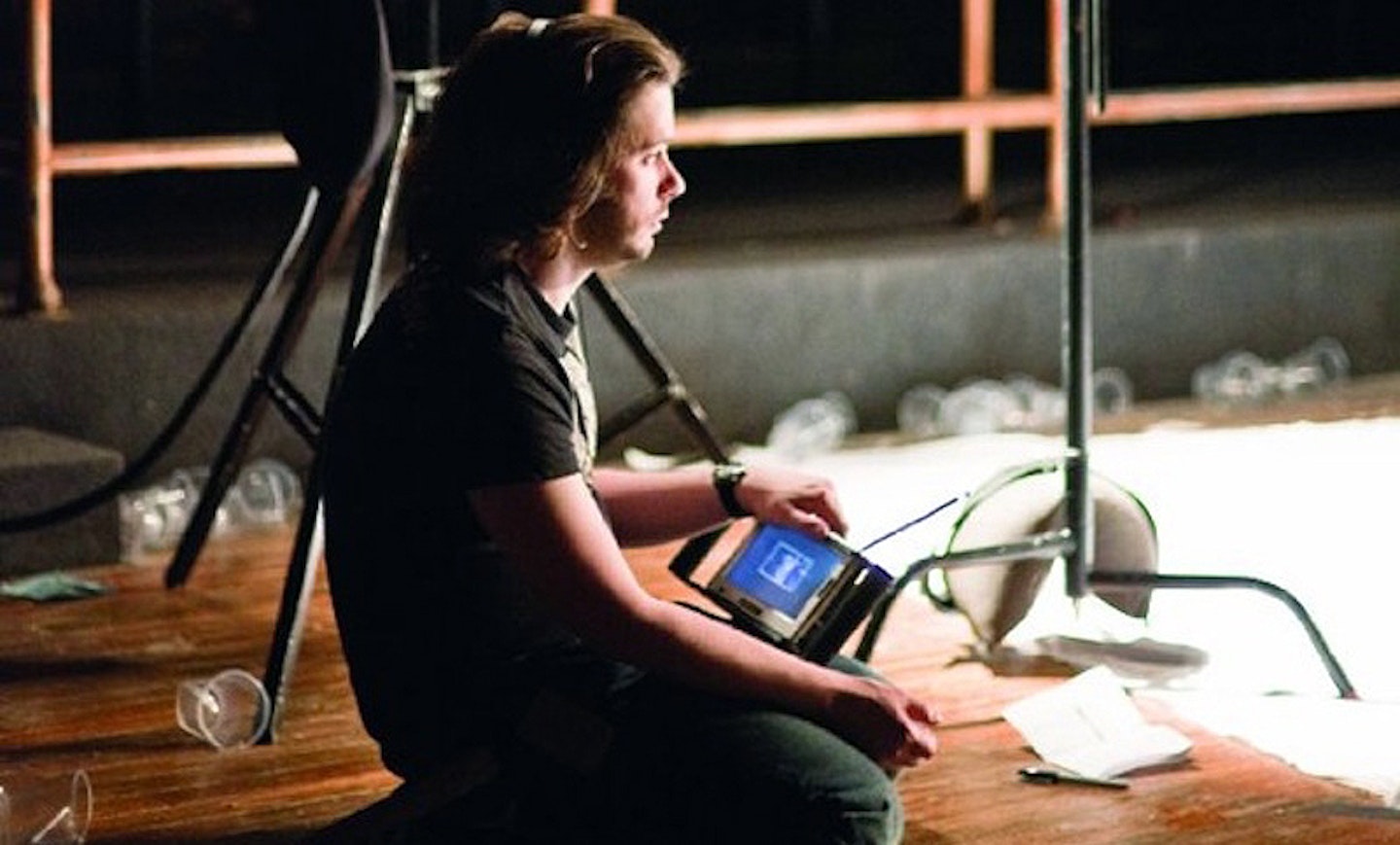
Joe Wright: Silence during rehearsals, no shouting and respect for everyone.
Greengrass: Speak your mind.
Cuarón: Any good crew follows the unwritten rules of filmmaking (not talking while the camera is rolling, staying out of the actors’ eye-line etc.) but every director has different procedures. I like to stage the scene in an empty set, with only Chivo (DP Emmanuel Lubezki) and my AD around, and only bring in the heads of departments when I’m happy with the staging.
Payne: No “rules.” What are you, British or something? I guess I’m too nice… No wonder people take advantage of me.
Soderbergh: No open-toed shoes.
What's the most takes you've ever done?
Spielberg: I did 50 takes on Robert Shaw assembling the Greener Gun on Jaws. The shark wasn’t working, so I just kept shooting to make the production report look like we were accomplishing something and to keep cast and crew from going crazy from boredom. It was a strategic indulgence.
Soderbergh: 48.
Fincher: 107.
Clooney: 18.
Nolan: I never pay attention to the number of takes.
Edgar Wright: I don’t think I have ever gone Kubrick crazy. So maybe 20 or so... But it’s usually six or seven takes.
Payne: Probably around 26. I’m normally a four-to-seven kind of guy, but every so often, when the actors, the operator, the dolly grip and the assistant cameramen must all work in sync, it might take a while to get right.
Marshall: I try not to do more than seven or eight. It can become counterproductive.
Cuarón: The long takes process doesn’t allow for that many takes. In the past I have shot over 50 takes of different shots. Sometimes you end up using take 64, sometimes take four.
Michell: Like current Australian batsmen... Very rarely double figures.
Lee: For acting, 13. For action, 36.
Bier: Twenty-five, I think. Which, if you’re trying to get the best performance, is way, way too much.
Joe Wright: Thirty-seven maybe, can’t really remember. I’m usually in the range of 12 to 16 unless it’s a very technically challenging shot.
Coppola: I can’t remember, nothing too crazy, because we never have that much time in the schedule.
Whedon: On an elaborate shot, 30. On a bit of dialogue, I’ve seldom gone into double digits.
Greengrass: I don’t count over ten.
How many cups of coffee a day?
Michell: Green tea or decaff.
Spielberg: I never had a cup of coffee in my life, but I have at least a dozen cups of mint tea a day.
Joe Wright: Way too many, hence the beta-blockers. I met my last assistant when she was working as a barista so we had an espresso machine in my office — that was dangerous.
Cuarón: No coffee. Green tea in the morning, white tea in the afternoon. Far too many.
Whedon: Only tea, ’til Age Of Ultron, where I got hooked. Even then, one or two. With tea in-between. Tea I can swill all day.
Bier: Two, maybe three. I drink loads of herbal tea, though, ten cups or so. A pretty unexciting habit, I know.
Greengrass: More than the most takes I’ve ever done!
Fincher: Three tops, or I become too caustic/vengeful.
Lee: Two.
Clooney: Three.
Marshall: One in the morning. One at ‘tea time’. But always iced.
Nolan: So many that I was forced to give it up and take up tea after Insomnia.
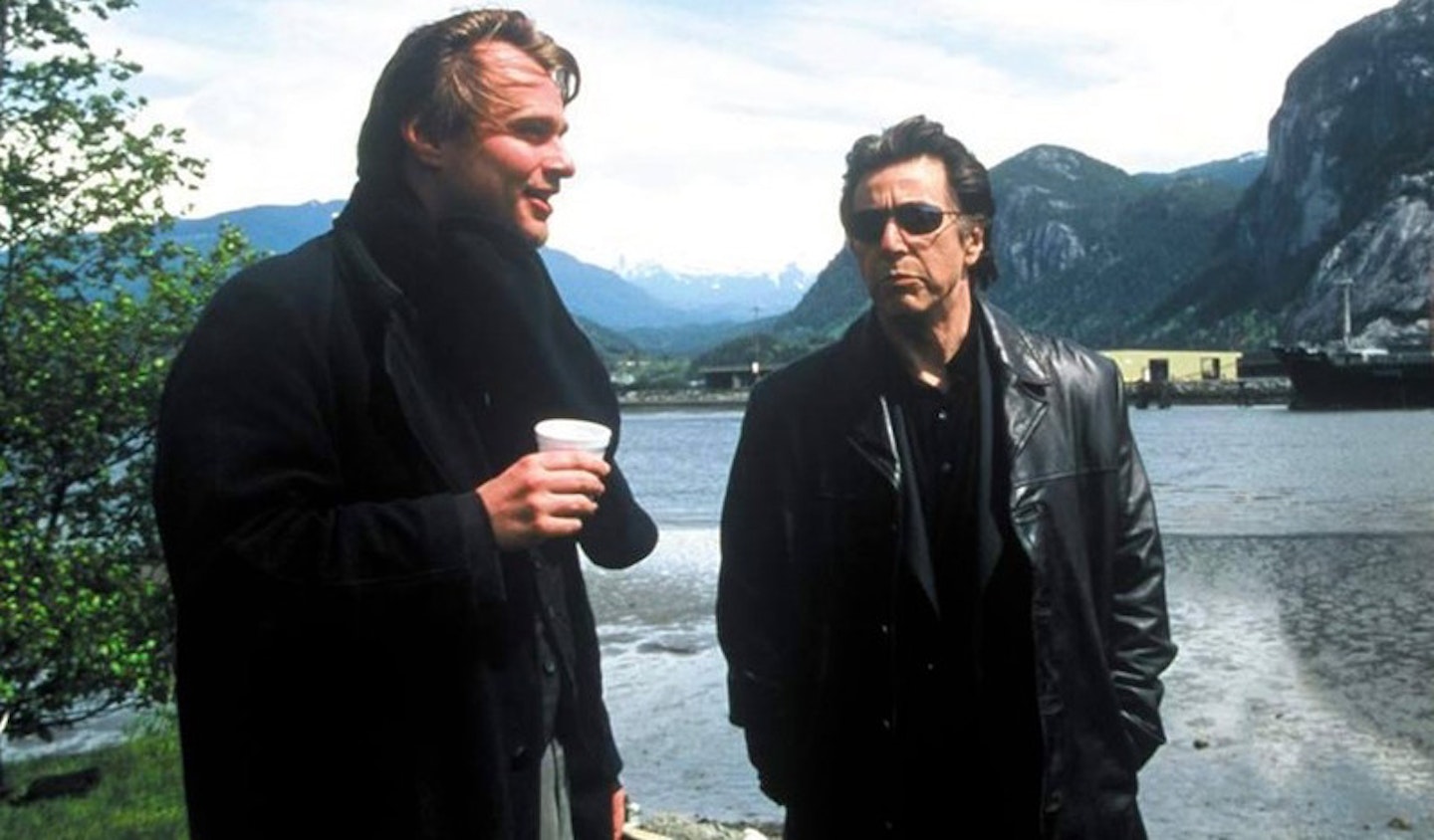
Soderbergh: Never had a cup of coffee in my life. Dr Pepper is my caffeine delivery system of choice.
Payne: About three double espressos.
Edgar Wright: Way too many. Once I had a potentially heart attack-inducing eight double espressos in one day. I think my assistant secretly swaps my coffees for decaf as she doesn’t want me to die of caffeine overdose.
What’s your best-ever day on set?
Clooney: Watching David Strathairn do a three-page monologue in one take on Good Night, And Good Luck.
Spielberg: My best day on set is just about every day.
Edgar Wright: Any time I think out loud, “I can’t believe this is my job,” and remember I am a very lucky duck. Whether marshalling hundreds of zombies, doing crazy stunts or shooting big music numbers, I just feel fortunate to have made my passion my vocation.
Whedon: Couldn’t choose. Any day I got the footage and sent the crew home on time is pretty damn fair. If that day involved people dancing, it’d probably make the short list.
Cuarón: When you allow the unexpected to happen and you flow with it.
Marshall: The first day working with an actor. Especially one I’ve always admired. And I’ve been lucky to work with so many…
Michell: Last day of shoot.
Soderbergh: When a difficult scene you’ve been dreading turns out to be easy, quick and good.
Bier: When a scene you’ve worried about turns out amazingly.
Joe Wright: Probably the day we shot the long Steadicam shot on the beach for Atonement. We spent the whole day preparing under heavy cloud but at sunset, just as we were ready to shoot, the sun dipped beneath the cloud and everything just came together, a huge team effort. We all, including the 1,000 extras from the local community of Redcar who had brought family and picnics, felt a sincere sense of ownership. I was beatific when I called, “Cut,” that day.
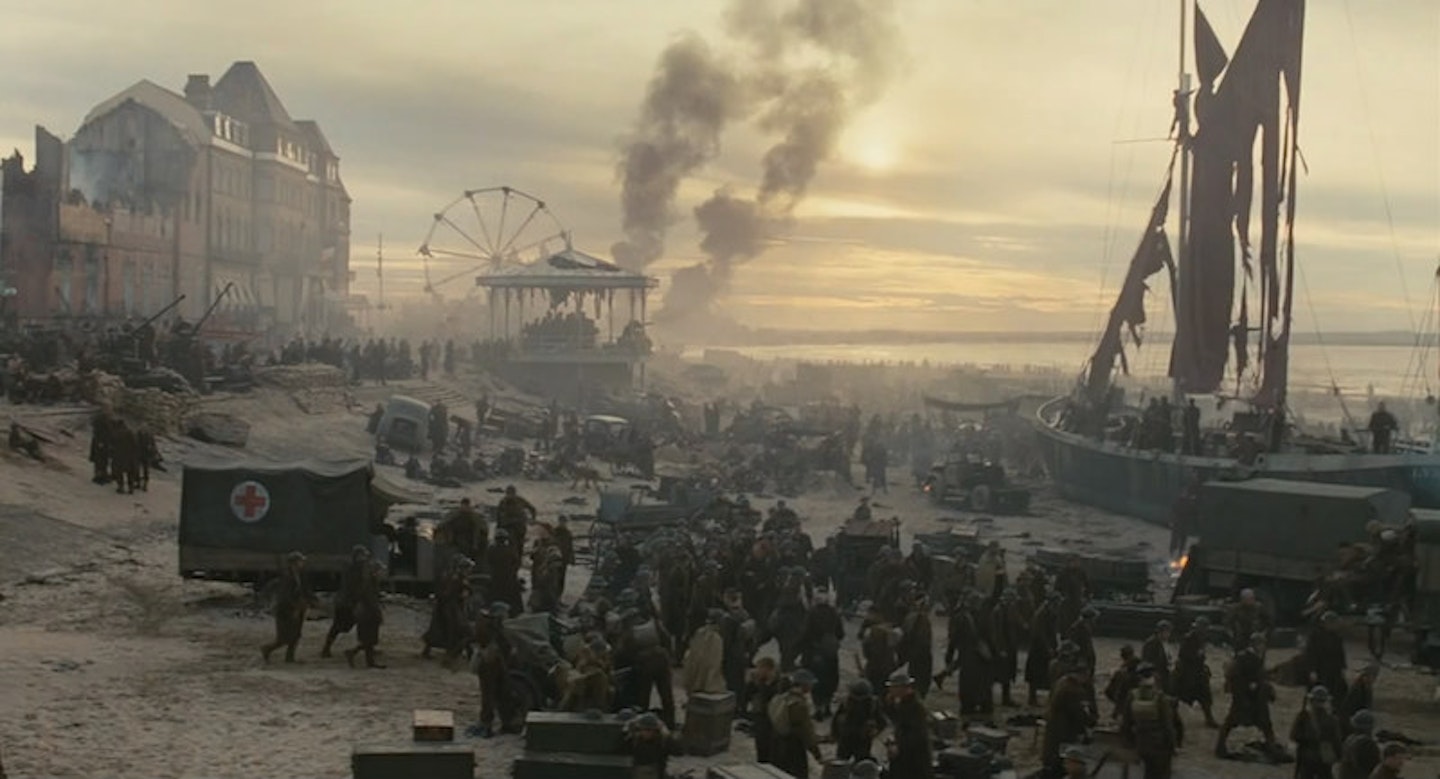
Fincher: When the plan goes totally awry, and something amazing happens...
Payne: Sorry to sound corny, but even the worst day on set is the best day on set and heads-and-shoulders above not shooting.
Lee: There were many days, but off the top of my head, one day on Brokeback Mountain, shooting the scene where Ennis visits Jack’s parents.
Coppola: When Bill Murray is there.
Greengrass: Probably Bloody Sunday. We had no money for extras and gambled on months of outreach to persuade the people of Derry to turn out and march for us on one single afternoon. And they did. In their tens of thousands. Seeing them march, their patience and their dignity and their commitment, I knew the movie would have a quality of truth.
Nolan: The last.
Real explosion or CGI explosion?
Spielberg: Saving Private Ryan boasts 100 per cent practical explosions.

Payne: Never done an explosion, but I have had explosive diarrhea, and that was very, very real. Good thing I have my trailer.
Edgar Wright: Real. So much more fun to shoot. On Hot Fuzz we even blew up a miniature of the police station and I made sure I was there when they detonated. Too much fun.
Whedon: Real is real. Nothing else is real. Unless it’s a safety issue, there’s no contest.
Soderbergh: Real, so far.
Bier: Real explosion. It’s really fun.
Marshall: Real, if possible – with CGI enhancement.
Joe Wright: Real explosion with CGI enhancement.
Lee: Real, with occasional CGI enhancement to sex it up.
Nolan: Real explosion.
Clooney: Real.
Cuarón: A real explosion is not only much more fun to shoot, it also helps the actors and creates an energy on set and ultimately in the scene.
Fincher: Real, contained and easily replicable (fast reset, propane?). On set – but with countless iterations of CG augmentation.
Greengrass: Both. Augmented reality.
Coppola: I don’t think I’ve ever done any explosions.
Michell: Huh?
What's the most useful advice you received from a fellow director?
Coppola: My dad told me, “Your movie’s never as good as the dailies and never as bad as the rough cut.”
Joe Wright: “Take whatever experience you can doing whatever you can so that when the big opportunity presents itself to you you’re as prepared as you can be.” Sidney Lumet said that but not to me, I read it in his book. Directors don’t often get to talk to other directors.
Lee: I dare not say in public.
Nolan: “Open the kimono” — Soderbergh telling me not to hide my process from the studio.
Soderbergh: “Write everything down.”
Clooney: “Only shoot what you’ll need.”
Whedon: James Cameron told me, “You can hire the 50 best people in the business, people you love and trust and respect. You all look at the monitor — you’re gonna be the only one who sees what’s wrong.”
Marshall: It was actually the opposite of what a director once said to me. He said, “Remember, everyone is here to serve you.” And as he walked away, I thought to myself, “It’s exactly the opposite: ‘I’m here to serve everyone.’”
Cuarón: I’ve been blessed with a lot of advice from other directors. Among the many: “Manage your energy”; “Story, actors, location”; “Fail on your own terms”; “One for me and one for myself”; “Don’t eat the red ones.”
Bier: The best advice I ever got was a result of the worst advice I ever got. When I was at film school, one of my teachers suggested it was a good idea for us directors to integrate ourselves into the crew by, say, rolling up the cables and moving lights etc. So I did – and was finally, and politely, asked by my crew to “do what you do best, and we’ll do the same”. Which was pretty embarrassing. And pretty good advice.
Greengrass: Before I made my first film, having previously worked only in documentaries, I went to see Roger Michell, an old university friend, and by then a hugely experienced and brilliant theatre and film director. He gave me a wonderful piece of advice. He said, “Never touch an actor.” By which he meant — don’t guide an actor. Don’t corral an actor. Don’t decide in advance where they should go. On the contrary, always listen to them. Always let them lead you. Always try to clarify their instincts. Because your actors will always be your best guide to the truth.
Michell: “If you think you might need a close-up... You need a close-up.”
Edgar Wright: John Sayles has this great quote: “Never do more than two takes of someone getting out of a car.” But the most inspiring one I received personally was from the aforementioned (name drop) Steven Spielberg, who I emailed with on the last week of shooting The World’s End, and he replied with this sentence: “Good luck on your last week. Finish strong.” I went in the next day with a spring in my step after that.
Payne: “Always speak to the actors singly and in a whisper.”
Fincher: Scorsese once told me, “The things you do poorly are as much a part of your style as the things you do well...” Which was totally true, and oddly reassuring.
Why didn't you just become an accountant?
Spielberg: I could never have been an accountant. I got a D in math.
Fincher: I’m not good enough with “people” to do that kind of work.
Joe Wright: If I could have done anything other than become a director I probably would have, but I couldn’t see any other options. It was all I could do and all I ever wanted to do.
Whedon: I am a storyteller. That is the very essence of my being. Also I can’t count.
Marshall: Hilarious! Not in my DNA.
Soderbergh: Terrible at math.
Greengrass: 2 + 2 = 5, right?
Whedon: I am a storyteller. That is the very essence of my being. Also I can’t count.
Bier: Because I’ve never looked at a tax return without immediately losing consciousness.
Coppola: It was inevitable, I guess, growing up on sets. Nothing looks as fun.
Michell: Is it too late?
Cuarón: The positions were all taken.
Lee: Directing a movie is a lot easier for me.
Clooney: Because I’m lousy at math.
Nolan: There’s enough number crunching in moviemaking to satisfy my accounting ambitions.
Edgar Wright: I am not even in spitting distance of being the greatest film director in the world, but I can say with the utmost certainty that I would be the worst accountant of all time.
Payne: Piss off.
Read the full article in the November issue of Empire, on sale now.
